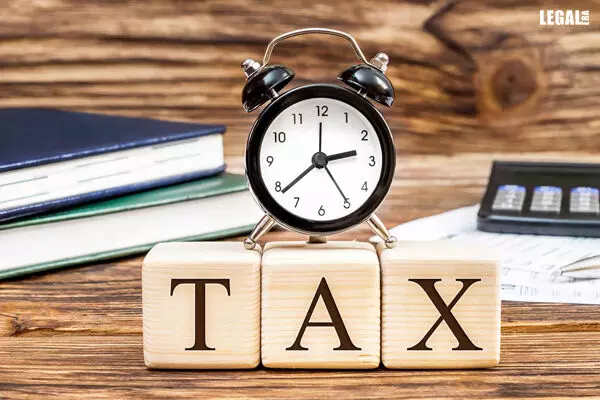- Home
- News
- Articles+
- Aerospace
- Artificial Intelligence
- Agriculture
- Alternate Dispute Resolution
- Arbitration & Mediation
- Banking and Finance
- Bankruptcy
- Book Review
- Bribery & Corruption
- Commercial Litigation
- Competition Law
- Conference Reports
- Consumer Products
- Contract
- Corporate Governance
- Corporate Law
- Covid-19
- Cryptocurrency
- Cybersecurity
- Data Protection
- Defence
- Digital Economy
- E-commerce
- Employment Law
- Energy and Natural Resources
- Entertainment and Sports Law
- Environmental Law
- Environmental, Social, and Governance
- Foreign Direct Investment
- Food and Beverage
- Gaming
- Health Care
- IBC Diaries
- In Focus
- Inclusion & Diversity
- Insurance Law
- Intellectual Property
- International Law
- IP & Tech Era
- Know the Law
- Labour Laws
- Law & Policy and Regulation
- Litigation
- Litigation Funding
- Manufacturing
- Mergers & Acquisitions
- NFTs
- Privacy
- Private Equity
- Project Finance
- Real Estate
- Risk and Compliance
- Student Corner
- Take On Board
- Tax
- Technology Media and Telecom
- Tributes
- Viewpoint
- Zoom In
- Law Firms
- In-House
- Rankings
- E-Magazine
- Legal Era TV
- Events
- Middle East
- Africa
- News
- Articles
- Aerospace
- Artificial Intelligence
- Agriculture
- Alternate Dispute Resolution
- Arbitration & Mediation
- Banking and Finance
- Bankruptcy
- Book Review
- Bribery & Corruption
- Commercial Litigation
- Competition Law
- Conference Reports
- Consumer Products
- Contract
- Corporate Governance
- Corporate Law
- Covid-19
- Cryptocurrency
- Cybersecurity
- Data Protection
- Defence
- Digital Economy
- E-commerce
- Employment Law
- Energy and Natural Resources
- Entertainment and Sports Law
- Environmental Law
- Environmental, Social, and Governance
- Foreign Direct Investment
- Food and Beverage
- Gaming
- Health Care
- IBC Diaries
- In Focus
- Inclusion & Diversity
- Insurance Law
- Intellectual Property
- International Law
- IP & Tech Era
- Know the Law
- Labour Laws
- Law & Policy and Regulation
- Litigation
- Litigation Funding
- Manufacturing
- Mergers & Acquisitions
- NFTs
- Privacy
- Private Equity
- Project Finance
- Real Estate
- Risk and Compliance
- Student Corner
- Take On Board
- Tax
- Technology Media and Telecom
- Tributes
- Viewpoint
- Zoom In
- Law Firms
- In-House
- Rankings
- E-Magazine
- Legal Era TV
- Events
- Middle East
- Africa
Supreme Court: Completed/Unabated Assessments Can be Re-Opened by AO Subject to Fulfilment of Conditions Envisaged under Sections 147/148 of Income Tax Act

Supreme Court: Completed/Unabated Assessments Can be Re-Opened by AO Subject to Fulfilment of Conditions Envisaged under Sections 147/148 of Income Tax Act
The Supreme Court has observed that completed/unabated assessments could be re-opened by the Assessing Officer (AO) in exercise of powers under Sections 147/148 of the Income Tax Act, 1961 subject to fulfilment of the conditions envisaged under Sections 147/148 of the Income Tax Act, 1961.
The bench comprising Justices C.T. Ravikumar and Manoj Misra while adjudicating an appeal reiterated that in view of the judgment of the Supreme court in Principal Commissioner of Income Tax vs. Abhisar Buildwell Pvt. Ltd. (2023), an AO cannot make additions to assessee’s income in respect of completed/unabated assessments if no incriminating material has been found during the course of search under Section 132 or requisition under Section 132A of the Income Tax Act, 1961.
Sections 147 / 148 of the Act deal with AO’s power to assess or reassess income if any income chargeable to tax in the case of an assessee has escaped assessment for any assessment year.
An appeal was filed against the decision of the Delhi High Court which had dismissed the appeals filed by the Revenue Department against the order of the Income Tax Appellate Tribunal (ITAT), where the additions made by the AO were deleted. The High Court had noted that the assessment of the assessee had attained finality prior to the date of search and no incriminating documents or materials had been found and seized at the time of search.
Accordingly, the Court held that no additions could be made under Section 153A of the Act as the cases of the respondent-assessee were of non-abated assessments.
In the appeal filed before the Supreme Court, the counsel for the Revenue Department and the assessee, King Buildcon Pvt. Ltd, highlighted that the appeal was squarely covered by the decision of the Supreme Court in Abhisar Buildwell (2023).
The bench while observing that no incriminating material was found during the search, and in light of the law laid down in Abhisar Buildwell (2023), dismissed the appeal.
However, the Court clarified that, “in view of the decision in Abhisar’s case (supra), completed/unabated assessments could be re-opened by the AO in exercise of powers under Sections 147/148 of the Income Tax Act subject to fulfilment of the conditions envisaged under Sections 147/148 of the Income Tax Act.”
Therefore, the Court said that the AO’s powers under Sections 147/148 of the Income Tax Act were saved in terms of Supreme Court’s judgment in Abhisar Buildwell (2023) and dismissed the appeal.



